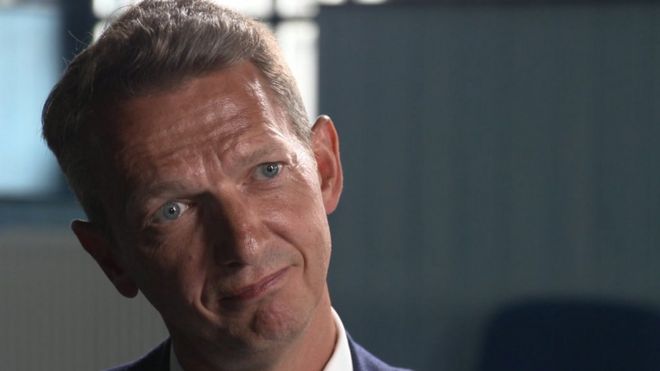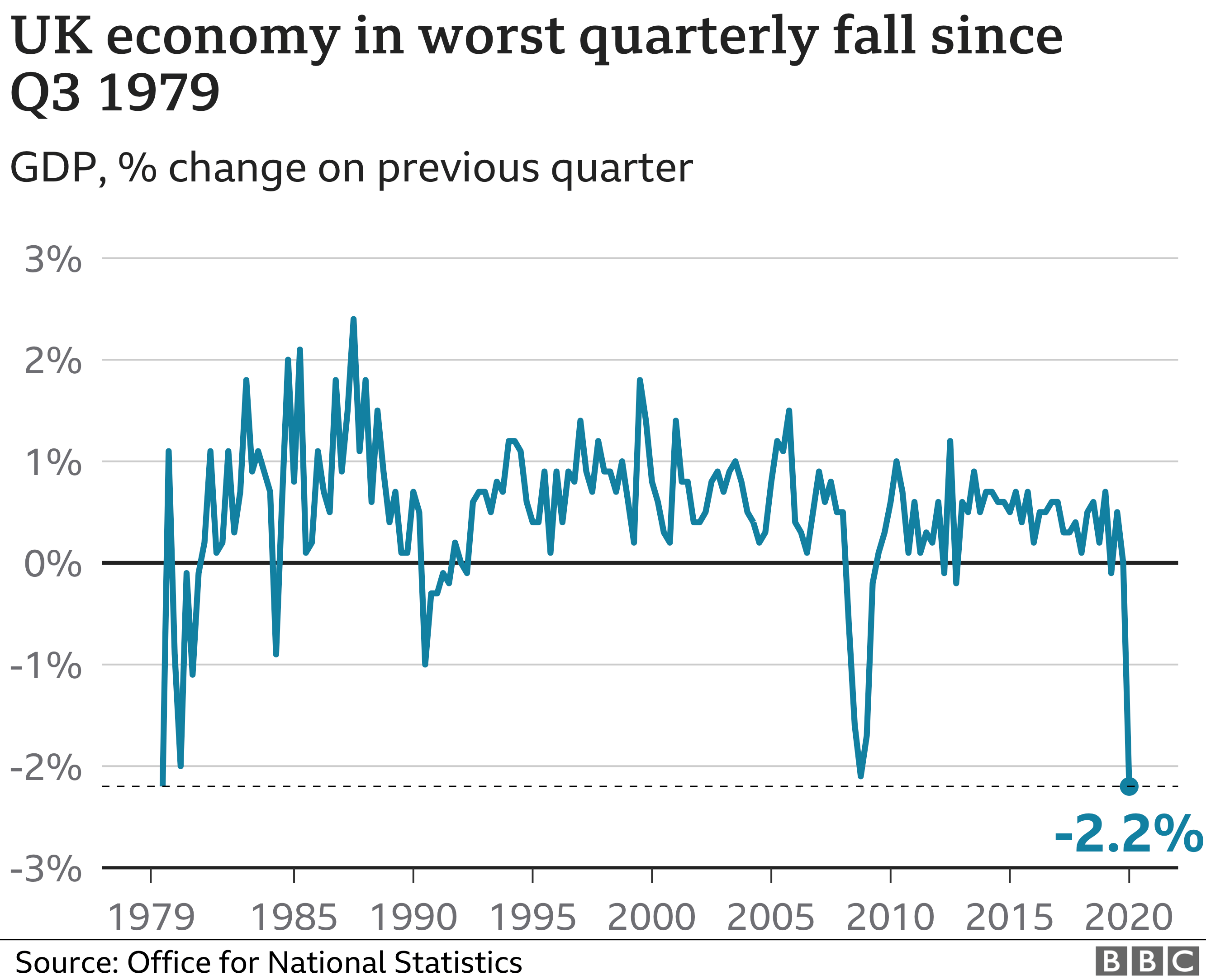
The UK economy is still on track for a quick or so-called V-shaped recovery, according to Bank of England economist Andy Haldane.
In a speech on Tuesday, he said the recovery in the UK and globally had come "sooner and faster" than expected.
However, he sounded a note of caution on jobs in the wake of the pandemic.
He said either consumer spending would ease unemployment or unemployment would cut household spending. Both could create virtuous or vicious cycles.
But at this stage, he said he could not tell which one would prevail.
So far, the economy is benefiting from robust strength in consumer spending, aided by many workers working from home or drawing 80% of their salaries through the government's furlough scheme.
"As the furlough scheme tapers from August, however, there is a risk this greater number of furloughed workers are not hired back by employers, adding to the unemployment pool," he said.
But he warned that the greatest risk was "a repeat of the high and long-duration unemployment rates of the 1980s, especially among young people".
Unemployment risk
Earlier this month, the Bank said the economy was on course for a contraction in the second quarter of about 20% compared with the final three months of 2019.
This is a record, but not quite as extreme as the 27% it predicted in May.

These numbers are subject to constant revision, however, both good and bad.
Mr Haldane's speech came as new figures showed the UK economy shrank more than first thought between January and March, contracting 2.2% in the joint largest fall since 1979.
The Office for National Statistics revised down its previous estimate of a 2% contraction.
The three-month period included just nine days of coronavirus lockdown.
The Bank recently added £100bn to its bond-buying programme to help prop up the economy.
The extra monetary stimulus - known as quantitative easing (QE) - will raise the total size of the Bank's asset purchase programme to £745bn.
Mr Haldane voted against the increase. He said the recovery was happening "sooner and materially faster" than the Bank expected in May.
In his speech, Mr Haldane also pointed out just how much of the UK's financial system the Bank owns.
The new purchases "take the Bank's balance sheet to around 45% of 2019 UK GDP by the year-end, more than double its previous high-water mark", he said, outstripping the purchases made during World War Two, the South Sea bubble or the global financial crisis.
He said there was not much more that cheap borrowing could do to help mend the economy.
Global job fears
Fears of long-lasting joblessness are not confined to the UK.
A new assessment from the International Labour Organization - a United Nations agency - points to the damage the pandemic has already done to global employment.
The health crisis has led to a drop of 14% in hours worked globally, equivalent to 400 million full-time jobs. That's a substantially larger impact than the ILO found only a month ago.
The loss of hours worked is largest in the Americas, where the ILO says there are currently the most restrictions on workers and workplaces. The impact has been especially severe in South America, where working hours declined by 20%.
The report said women had been disproportionately affected. The downturn has hit service industries very hard, where many women work. They have also been more affected than men by the increased burden of unpaid care brought by the pandemic.
Looking ahead, the ILO does envisage some recovery in employment in the second half of the year.
The report looks at three scenarios which vary depending on the trajectory of the pandemic and government policy choices. Even the most optimistic of these - what the report calls an exceptionally fast recovery - is not likely to see employment return to pre-pandemic levels.
No comments:
Post a Comment